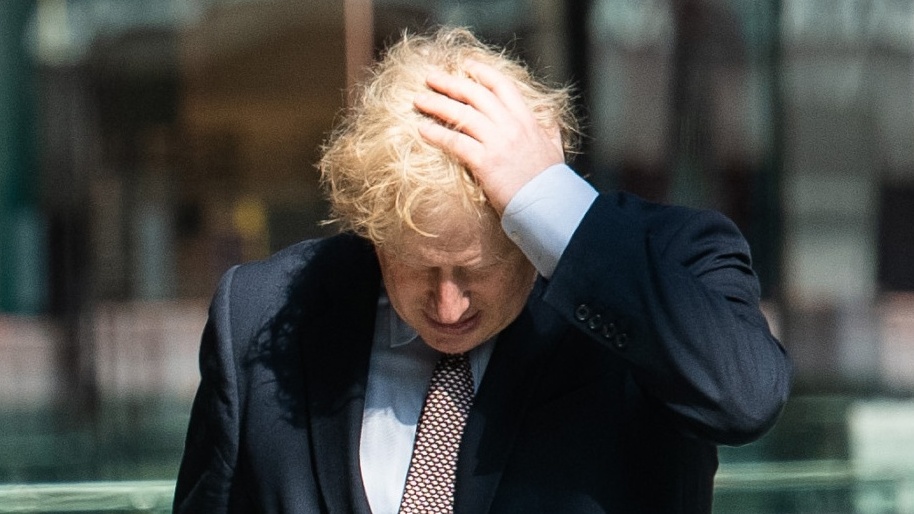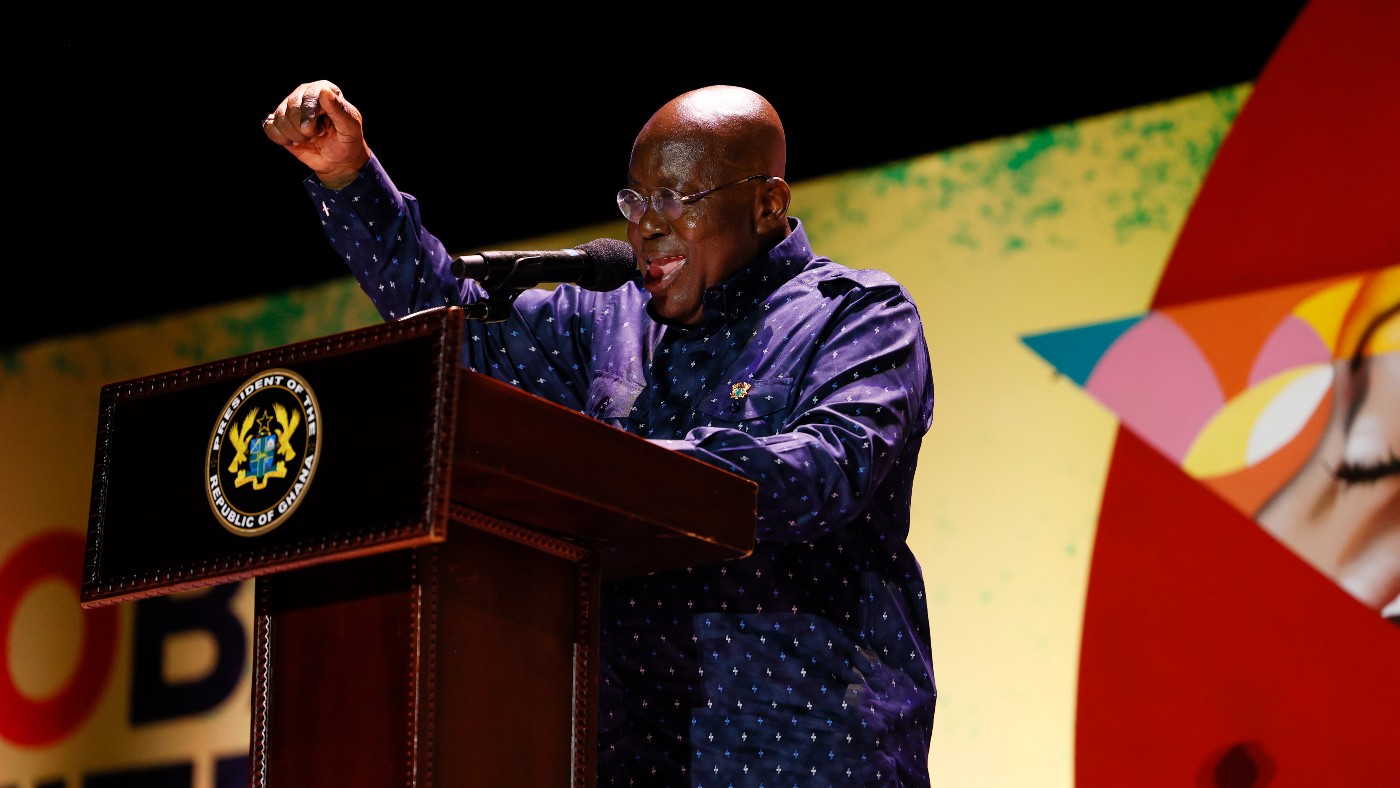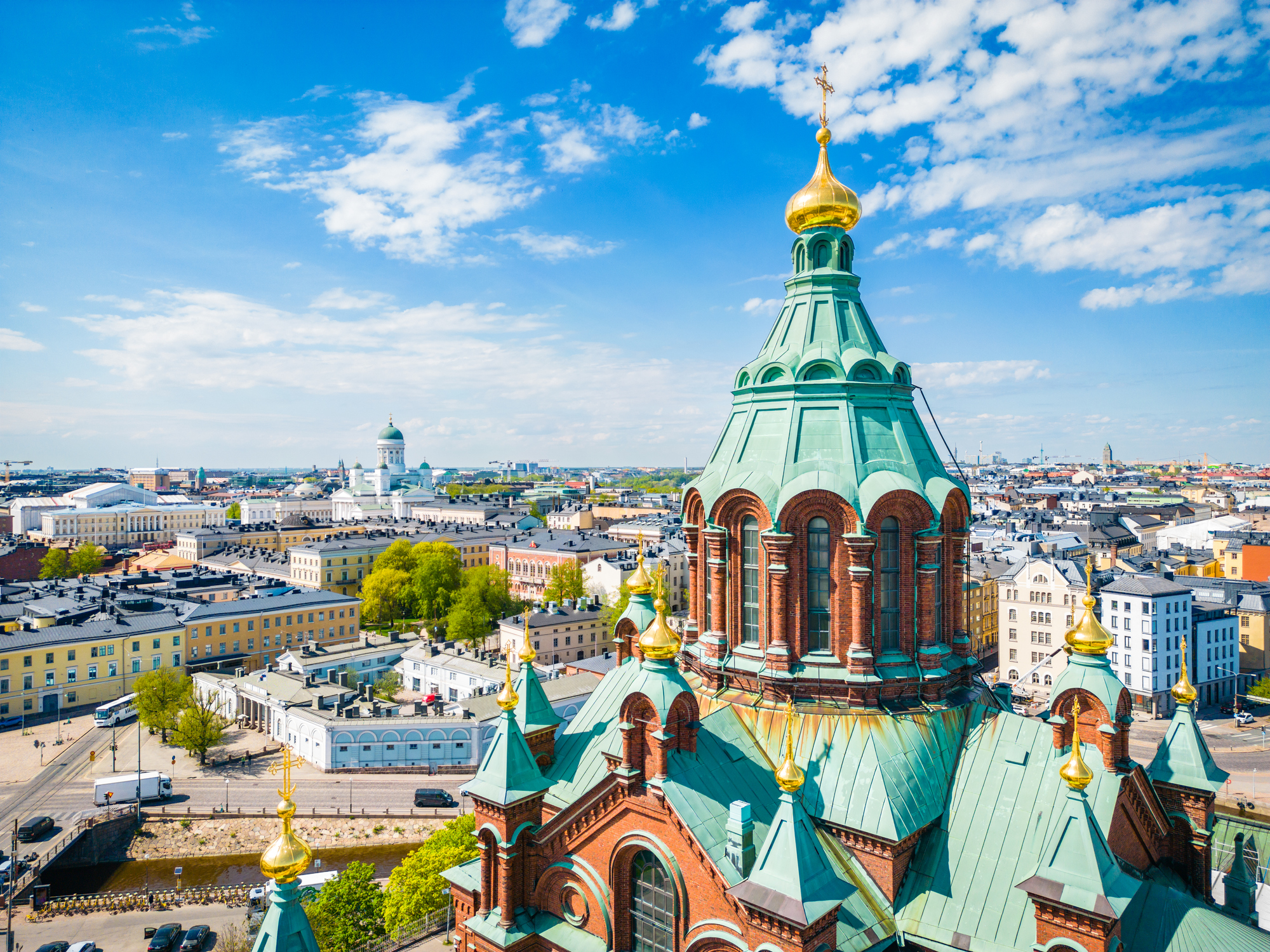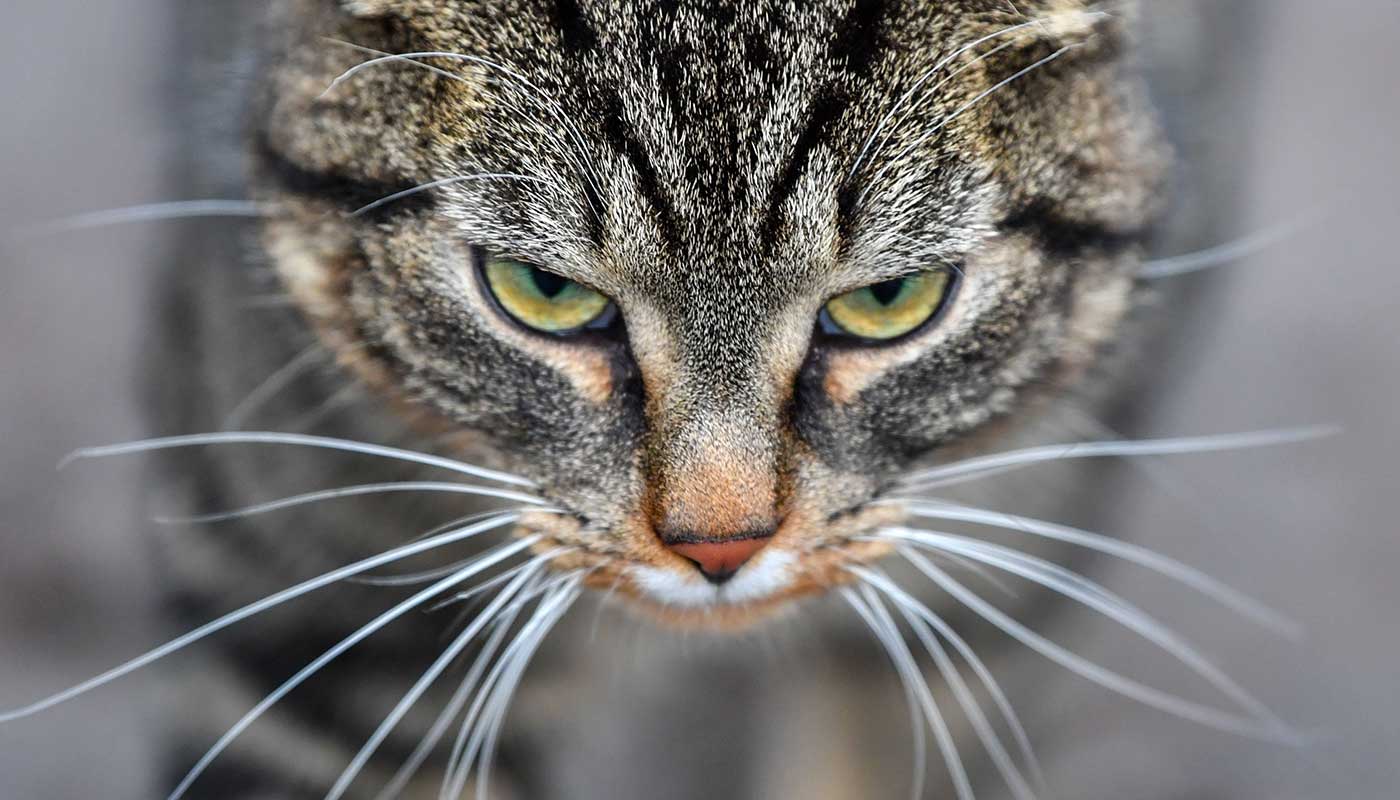Instant Opinion: the world is ‘laughing’ at Boris Johnson and Britain
Your guide to the best columns and commentary on Thursday 18 June

A free daily email with the biggest news stories of the day – and the best features from TheWeek.com
You are now subscribed
Your newsletter sign-up was successful
The Week’s daily round-up highlights the five best opinion pieces from across the British and international media, with excerpts from each.
1. Sean O’Grady in The Independent
on plans to paint the PM’s plane
The Week
Escape your echo chamber. Get the facts behind the news, plus analysis from multiple perspectives.

Sign up for The Week's Free Newsletters
From our morning news briefing to a weekly Good News Newsletter, get the best of The Week delivered directly to your inbox.
From our morning news briefing to a weekly Good News Newsletter, get the best of The Week delivered directly to your inbox.
As Boris Johnson steps aboard the newly decorated Clown Force One, the world is laughing at Britain
“There was a time not so long ago when British diplomacy was an understated, dignified affair. The country had a reputation as a sensible place, run by sensible politicians; a nation that stood for tolerance and the shrewd pursuit of the national interest, its modern world-class industries enjoying easy access to the planet’s largest single market. A country with a generous, internationalist disposition and one that took it’s obligations in the world seriously – including to international development. We enjoy tradition, but it does not define us. All that. Now we’re a floating, flying museum piece, trying to sustain the trappings of global power and prestige but without the economic strength or diplomatic influence to back it up. It’s like when ‘Emperor’ Bokassa of the poverty-stricken Central African Republic spent a third of his country’s GDP in an absurd coronation ceremony. In our case... we’ve just got an old Etonian buffoon leading us into the second childhood of the British Empire, making meaningless speeches about putting a tiger in the tank and giving us back our mojo – and hoping that we can’t hear the rest of the world as it laughs at us.”
2. Joanna Williams, author of Academic Freedom in an Age of Conformity, in The Times
on the fall of Rhodes and its aftershock
A free daily email with the biggest news stories of the day – and the best features from TheWeek.com
Oxford is tying itself in knots over racism
“The word trauma does a lot of work in universities today. Rhodes Must Fall campaigners tell us that walking past a statue is traumatic. Students in Bristol say that sitting in Colston Hall or the Wills Memorial Building is traumatic, even if the seats are plush and the lectures engaging. It is perilous to challenge this narrative of emotional breakdown. Back at Oxford, [vice-chancellor Louise] Richardson’s offer of marks for distress has not saved her from criticism at the hands of 14 of her university’s academics. She has been taken to task for ‘ventriloquising’ Nelson Mandela after claiming that he would not have wanted the statue of Cecil Rhodes to be taken down. Increasingly, it is knowledge that is considered trauma-inducing. Decolonising the curriculum has been all the rage for several years. For subjects like literature, politics and philosophy this initially meant little more than checking course content to ensure greater diversity... But decolonisers need to be honest: unless teaching time is increased, every new addition means an existing work is dropped. Most important of all, the basis for inclusion in the curriculum needs to be merit, irrespective of the skin colour of the thinker.”
3. Ian Cobain, author of The History Thieves: Secrets, Lies and the Shaping of a Modern Nation, in The Guardian
on the destruction of Britain’s dark history
Lying about our history? Now that’s something Britain excels at
“It was inevitable that some would insist that ripping the statue of slave trader Edward Colston from its plinth and disposing of it in a harbour in Bristol was an act of historical revisionism; that others would argue that its removal was long overdue, and that the act itself was history in the making. After more statues were removed across the United States and Europe, Boris Johnson weighed in, arguing that ‘to tear [these statues] down would be to lie about our history’. But lying about our history - and particularly about our late-colonial history - has been a habit of the British state for decades. In 2013 I discovered that the Foreign and Commonwealth Office had been unlawfully concealing 1.2m historical files at a highly secure government compound at Hanslope Park, north of London... The operation - and its attempts to conceal and manipulate history in an attempt to sculpt an official narrative – speaks of a certain jitteriness on the part of the British state, as if it feared that interpretations of the past that were based upon its own records would find it difficult to celebrate the ‘greatness’ of British history.”
4. Ross Clark in The Daily Telegraph
on the panic around ‘so-called’ infection spikes
We shouldn’t work ourselves into a frenzy about the threat of any ‘second wave’
“Look around the countries and places most affected by the virus, on the other hand, and there is not the faintest sign of a second spike – in spite of lockdowns being eased. Britain, Spain, Italy, France, Belgium, New York: in each case new cases continue to tail off, even though shops, schools and in many cases bars and restaurants have reopened. It adds credence to the case made by Anders Tegnell, Sweden’s chief epidemiologist, and our own government’s scientific advisers who argued initially that it is futile trying to stop this virus altogether: somehow or other it will eventually manage to infect everyone who is susceptible to it, up to a point where a country or community has gained herd immunity. You can suppress for a time by closing down the economy and forcing everyone to stay at home, but you will forever be left fire-fighting as outbreaks occur.”
–––––––––––––––––––––––––––––––For a round-up of the most important stories from around the world - and a concise, refreshing and balanced take on the week’s news agenda - try The Week magazine. Start your trial subscription today –––––––––––––––––––––––––––––––
5. Nicholas Kristof in The New York Times
on a panic triggered by delusion
When Antifa Hysteria Sweeps America
“I’ve occasionally encountered mass hysteria in other countries. In rural Indonesia, I once reported on a mob that was beheading people believed to be sorcerers, then carrying their heads on pikes. But I never imagined that the United States could plunge into such delirium. Antifa, short for anti-fascists, hasn’t killed anyone and appears to have been only a marginal presence in Black Lives Matter protests. None of those arrested on serious federal charges related to the unrest have been linked to antifa. Still, the movement has a mythic status in some right-wing narratives, and Trump and Fox News have hyped the threat. (The Seattle Times caught Fox faking photos to exaggerate unrest in Seattle.)... These antifa panics are where racism and hysteria intersect, in a nation that has more guns than people. They arise when a lying president takes every opportunity not to heal our national divisions but to stoke them, when people live in a news ecosystem that provides no reality check but inflames prejudices and feeds fears.”
-
 Political cartoons for February 16
Political cartoons for February 16Cartoons Monday’s political cartoons include President's Day, a valentine from the Epstein files, and more
-
 Regent Hong Kong: a tranquil haven with a prime waterfront spot
Regent Hong Kong: a tranquil haven with a prime waterfront spotThe Week Recommends The trendy hotel recently underwent an extensive two-year revamp
-
 The problem with diagnosing profound autism
The problem with diagnosing profound autismThe Explainer Experts are reconsidering the idea of autism as a spectrum, which could impact diagnoses and policy making for the condition
-
 ‘Irony’ as Zoom calls staff back to office
‘Irony’ as Zoom calls staff back to officefeature And other stories from the stranger side of life
-
 Ghana abolishes the death penalty
Ghana abolishes the death penaltyfeature It joins a growing list of African countries which are turning away from capital punishment
-
 The U.S. veterinarian shortage crisis
The U.S. veterinarian shortage crisisSpeed Read With an anticipated shortage of 15,000 vets by 2030, it will be harder to get care for pets
-
 Boris Johnson shocks UK by resigning from Parliament
Boris Johnson shocks UK by resigning from ParliamentSpeed Read
-
 Company teaches mask-wearers to smile again
Company teaches mask-wearers to smile againfeature And other stories from the stranger side of life
-
 Bees delay flight for three hours
Bees delay flight for three hoursfeature And other stories from the stranger side of life
-
 Global happiness has been 'remarkably resilient' over the past three years
Global happiness has been 'remarkably resilient' over the past three yearsfeature
-
 Ministers considered killing all cats during pandemic
Ministers considered killing all cats during pandemicfeature And other stories from the stranger side of life